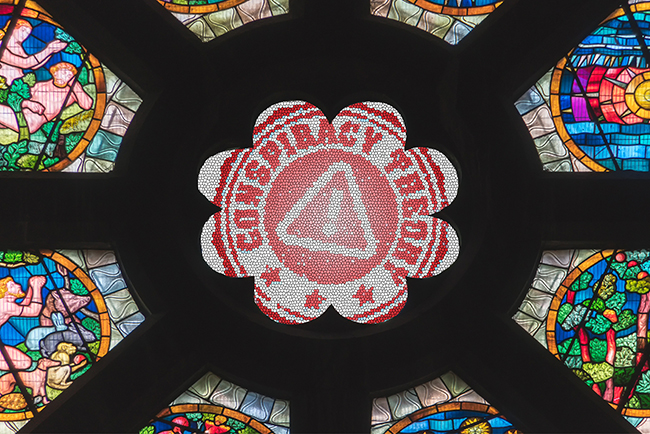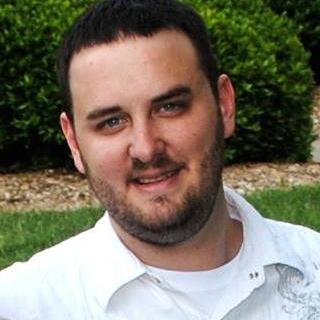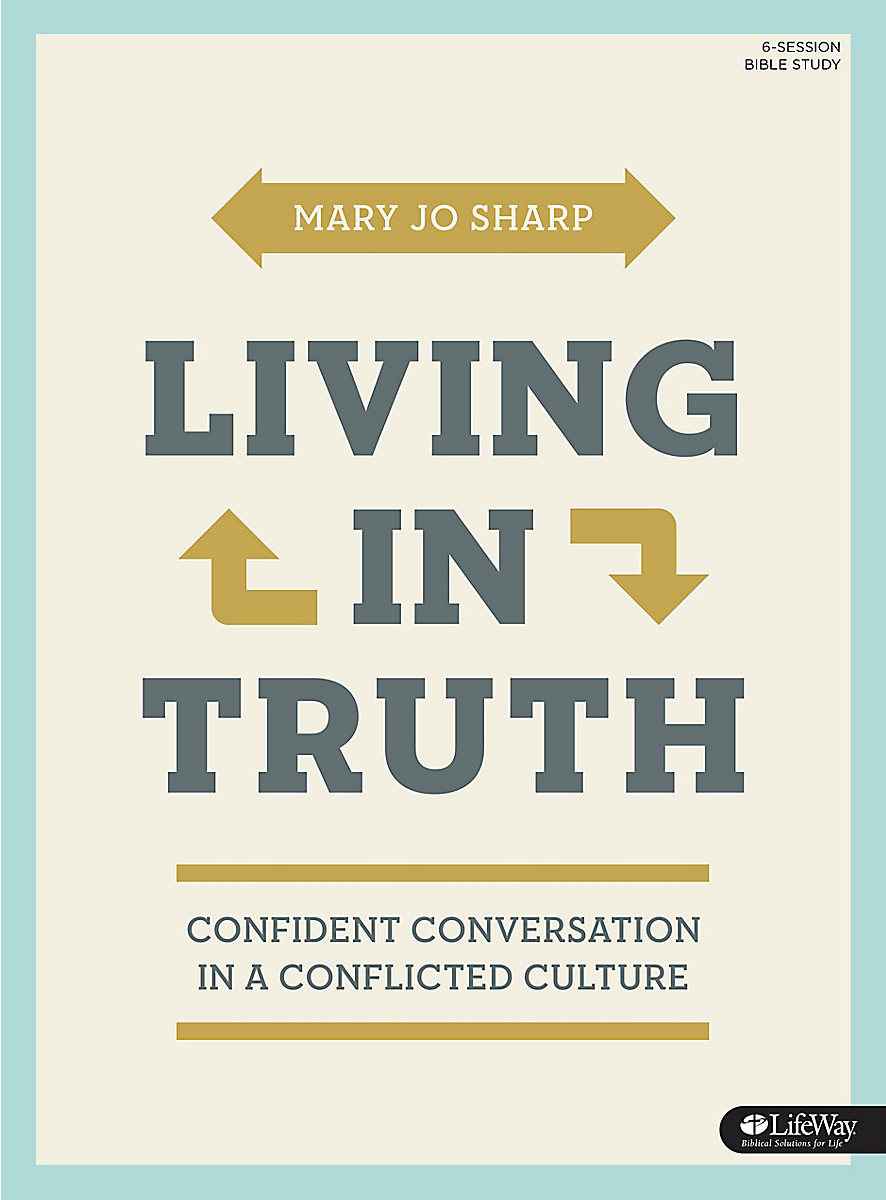
By Aaron Earls
Pastor Frank Pomeroy lost his 14-year-old daughter and 25 others in the deadliest church shooting in American history. Unfortunately, that wouldn’t be the last time he and his congregation dealt with an armed trespasser screaming death threats near their church building.
In the weeks and months after the November 5, 2017 tragedy at First Baptist Church of Sutherland Springs, Texas, individuals claiming the shooting was a government hoax began harassing Pomeroy and other survivors and victims.
Pomeroy says the conspiracy theorists immediately began calling the church and making threats. Eventually the phone and online harassment led to a physical confrontation on the church property.
In March 2018, Robert Ussery and Jodi Mann accosted the pastor on the church property, accusing him of being a paid government actor who helped make up the story of the shooting.
Ussery, who was armed with an illegally obtained gun, screamed and cursed at Pomeroy, demanding the pastor prove the tragedy happened. When Pomeroy mentioned the death of his daughter, Ussery yelled that the pastor’s daughter wasn’t murdered because there was no proof she even existed.
A church member called the police who came and arrested Ussery and Mann, but not before the duo threatened Pomeroy. “You’re gonna hang, traitor,” Ussery said, “that I assure you.”
“You’re gonna hang, traitor, that I assure you.” — Conspiracy theorist Robert Ussery to pastor Frank Pomeroy, who lost his lost his 14-year-old daughter and 25 others in the deadliest church shooting in American history.
Both were arrested and face multiple charges related to the incident. In addition to the gun Ussery had with him, police found a cache of weapons at his home.
The most frightening aspect of the confrontation for Pomeroy wasn’t Ussery’s willingness to hurt someone or even his being armed. “The scary thing was the look in his eyes that confirmed he believed all the ludicrous things he was saying,” Pomeroy says. “It was like looking into the face of pure evil.”
Thankfully, the pastor says God gave him a peace and enabled him to keep things in control, leading to a resolution without bloodshed—this time.
But conspiracy theories have become a growing concern for many pastors and church leaders across the country. In a recent Lifeway Research study, 49% of U.S. Protestant pastors say they frequently hear church members repeating conspiracy theories. While spreading harmful information has no religious or ideological limits, such dangerous explanations have a long, unfortunate history among Christians.
Church historians, Christian apologists, and those who have personally suffered as a result of conspiracy theories say followers of Christ must be concerned with seeking and following truth.
“Fast food for the mind”
By definition, conspiracy theories are descriptions of an event that reject the standard explanation and credit a covert group or organization with carrying out a secret plot. They arise around almost every significant world event and even some not so significant events.
Mary Jo Sharp, author of Living in Truth: Confident Conversations in a Conflicted Culture, says there are two main reasons people are drawn to conspiracy theories—ease of understanding and escape from the ordinary.
“In some ways, conspiracy theories provide people with a neat-and-tidy box in answering a question or issue,” she says. “While the theory may seem outlandish or complex, it typically limits the scope of the issue in question.”
Sharp says conspiracy theories often ignore the myriad of complex beliefs, desires, and motivations humans bring to an issue. Without those complicating matters, the conspiracy theorist can more easily comprehend the issue and move on with other things. “Belief in a conspiracy theory may be born out of a good desire to understand a situation but devolves into finding quickly digestible answers,” she says, “like fast food for the mind.”
“Belief in a conspiracy theory may be born out of a good desire to understand a situation but devolves into finding quickly digestible answers, like fast food for the mind.” — @MaryJoSharp Click To TweetThe outlandish explanation also allows adherents to escape the “mundane rigors of everyday life,” explains Sharp, an assistant professor of apologetics at Houston Baptist University. “A conspiracy theory adds a little Hollywood drama to life. It pulls us out of our daily grind into a realm of the fantastic and tantalizing.” The one exposing the “real truth” behind an event can be the hero of the story.
This desire, however, runs contrary to the Christian life and biblical teaching, according to Sharp. Christ is the hero of the story, and His followers should find their excitement in Him, she says. Embracing conspiracy theories is an “unfortunate situation” for the Christian says Sharp, “as the Lord of creation and His unparalleled action in human history should be the source of our wonder and awe.”
Conspiracy history
Despite this, Christians have been susceptible to various conspiracy theories throughout church history. “The issues surrounding conspiracy theories are not new, have affected Christians in almost every era, and can be very dangerous,” says John Mark Yeats, associate professor of church history at Midwestern Baptist Theological Seminary.
"The issues surrounding conspiracy theories are not new, have affected Christians in almost every era, and can be very dangerous," says church history professor John Mark Yeats. Click To TweetAs the black plague ravaged Europe in the 14th century, Yeats says people were desperately looking for answers as over a third of the population died from the disease. Jews became a scapegoat when, because of their kosher diet and biblical hygiene practices, they limited transmission.
“Some communities saw this lack of proportionality of death in their communities and began to blame the Jews for poisoning the wells of Christian communities,” says Yeats. “This conspiracy theory joined with a host of others about the Jews and led to the mass slaughter of multiple Jewish communities often at the hands of angry mobs.”
Church historian Nathan Finn says there is a “long and sordid history of anti-Jewish conspiracy theories among Christians.” Finn, the provost at North Greenville University, says a prominent belief among medieval Christians was the “blood libel,” an accusation that Jews would ritualistically murder Christian children and use their blood in sacrilegious ceremonies that mocked baptism and the Eucharist.
These myths resurfaced later in works such as The Protocols of the Elders of Zion, which Adolf Hitler believed to be true and used as a justification for the Holocaust.
Christians can also spark conspiracy theories by misinterpreting Scripture to defend sinful behaviors, as the “Curse of Ham” theory began as an excuse to justify slavery.
Christians can also spark conspiracy theories by misinterpreting Scripture to defend sinful behaviors, as the “Curse of Ham” theory began to be circulated in the 17th century as an excuse to justify the enslavement of Africans by Europeans, says Yeats.
According to the theory, Noah’s curse spoken against Ham’s son Canaan in Genesis 9:25-27 made Canaan’s skin dark and designated him a slave to his brothers. Slavery defenders claimed the curse stretched to anyone with dark skin and “their subjugation was biblically justified,” says Yeats. Pro-slavery leaders and pastors promoted the conspiracy theory to defend their position and claimed abolitionists were attempting to reverse the scriptural mandate.
The theory persisted well beyond the institution of slavery in America and the Civil War. Martin Luther King Jr. specifically referenced the Curse of Ham in a 1956 sermon calling it “blasphemy” and “against everything that the Christian religion stands for.”
Modern Christian conspiracy theories
In more recent years, eschatological expectations often play a role in Christians accepting conspiracy theories, according to Yeats and Finn. “Far more common among Christians today are various conspiracy theories related to the end times,” says Finn, “many of which include some combination of thinking a public figure is the antichrist, suspicion of technology, and concerns about a one-world government.”
Growing up, he says many evangelicals were convinced the “www” shorthand for “worldwide web” in internet addresses was a stand-in for 666 and the mark of the beast in Revelation. Some were also convinced that George H.W. Bush had signed a document that placed the United States under a new world order that would evolve into the antichrist’s one-world government.
“While the Scriptures are clear that Jesus will return physically to draw all things to a close, interpretations of Revelation, Daniel, and other apocalyptic language in the Bible are often co-opted by groups in an attempt to move their own agenda forward,” says Yeats. In the 19th century, heightened expectations of Christ’s return birthed Mormonism, Jehovah’s Witnesses, and the Seventh Day Adventists, according to Yeats.
“While the Scriptures are clear that Jesus will return physically to draw all things to a close, interpretations of Revelation, Daniel, and other apocalyptic language in the Bible are often co-opted.” Click To TweetTimes of crisis can also lead to a rise in conspiracy theories. In Thinking, Fast and Slow, Daniel Kahneman’s best-selling book on our decision-making processes and what makes us prone to errors, the Nobel prize winning economist says: “There is evidence that people are more likely to be influenced by empty, persuasive messages, such as commercials, when they are tired and depleted.” Enduring a yearlong pandemic and a contentious election season have left many “tired and depleted,” leading them to be prone to deception.
Numerous conspiracy theories sprouted and spread online recently in an attempt to explain what seems to be unexplainable. This lack of solid information also leads to an increase in our susceptibility. Kahneman writes how knowing little “makes it easier to fit everything you know into a coherent pattern.”
Many of these seemingly coherent patterns today have been attributed to the QAnon conspiracy movement, named after an anonymous “Q” who pushes conspiratorial explanations for even the most mundane of occurrences. In the summer of 2020, QAnon followers began to assert Wayfair, an online furniture store, was not-so-secretly selling missing children on their website.
Many people in church pews have probably never heard of QAnon, but they’ve likely seen material on their social media feeds that originated with the group. According to one scholar tracking online extremism, QAnon content grew 71% on Twitter and 651% on Facebook in just four months in early 2020.
Personal costs
While the ramifications of conspiracy theories and Christians’ embrace of them can cause cultural and national problems, there can be significant costs to individuals and families. Like Frank Pomeroy, Christian author Lore Ferguson Wilbert knows those ramifications all too well.
“Neither me, nor my seven siblings were given Social Security numbers at birth because my parents believed they were the ‘mark of the beast,’ and we’d be ‘selling our souls to the devil’ if we accepted the mark,” says Wilbert, author of Handle With Care: How Jesus Redeems the Power of Touch in Life and Ministry.
“Neither me, nor my seven siblings were given Social Security numbers at birth because my parents believed they were the ‘mark of the beast,’ and we’d be ‘selling our souls to the devil’ if we accepted the mark.” — Lore Ferguson Wilbert
Eventually, their family moved to a remote area in the northern part of New York state where they stockpiled supplies, planned to build a bunker, and lived in constant fear that the government could come to take them away. “I had a ‘go-bag’ packed under my bed,” says Wilbert.
After observing inconsistencies in her family’s daily life and the doomsday Y2K scenarios failing to materialize, Wilbert says she could no longer “do the gymnastics necessary in order to keep up with it all.” She began the long process of striking out on her own.
Despite leaving her family’s conspiratorial mindset behind, Wilbert continued to wrestle with the ramifications of growing up in that environment, careening from complete skepticism of authority to absolute trust in certain leaders. Neither of those were healthy, she says, and eventually brought on another crash in her life. “This led me to a period of deep doubt and disillusionment with God and the church, but also cultivated a healthy curiosity for what is at the bedrock of the Christian faith.”
Wilbert says she lost her faith as she worked to emerge from her conspiracy-soaked upbringing, but “healthy curiosity” led her to teachers who articulated the gospel in ways she’d never understood previously. “I deeply value discernment as a spiritual gift because I think it’s the Spirit-fueled answer to skepticism,” she says. “I am always going to be a curious person, but when I lean too far into my doubts, that’s dangerous. And when I lean too far into putting my trust in people, that’s dangerous too. I have to abide in Christ, not in the ideas of men.”
Pastoral way forward
As someone who has seen the devastating effects of conspiracy theories firsthand, Frank Pomeroy says pastors can help their congregations avoid such thinking by concentrating on Scripture and avoiding fear-driven perspectives. “If one is walking in victory rather than fear, he is more likely to be able to stand on the Word of God and not need to seek out false or alternative meanings to the things around him,” said Pomeroy. “There is so much we do not know, but we can take faith in the fact that our God knows all, loves us, and will watch over us.”
“There is so much we do not know, but we can take faith in the fact that our God knows all, loves us, and will watch over us.” — Frank Pomeroy Click To TweetPastors can model this by their own behavior in public and online, according to Pomeroy. “We must be diligent to only share what we know and not fill in the gaps or then we become part of the problem,” he says. “We must keep reminding people that God knows the whole picture, and He does not need us to try to fill in the gaps He has not shown us yet.”
Mary Jo Sharp agrees that pastors must lead by example and model a better way on social media by pointing people to search out original sources and gain broad perspectives before commenting on a viral event or issue. “They can also train their congregations to recognize conspiracy theories and logical fallacies,” she says. “Helping believers think well and use sound reasoning will assist them with the careful engagement of ideas.”
Beyond right thinking, Sharp says what is most often needed is right loving of those who think differently. “Pastors and leaders can help their congregations learn empathy for others,” she says. “One of the most needed responses to the chaotic nature of our world is a listening ear and a broken heart.”
“One of the most needed responses to the chaotic nature of our world is a listening ear and a broken heart.” — @MaryJoSharp Click To TweetCredibility concerns
Conspiracy theories can have a personal cost even for those who haven’t faced gunman at their church or abusive home situations. As Sharp argues, they can harm our witness and credibility to non-Christians. “If a Christian cannot be trusted to pass along worldly information in a responsible manner, then it would be perceived they are irresponsible in their ability to share other-worldly information, such as ideas about God,” she says.
“Such carelessness can act as evidence for a non-believer that Christians are not thoughtful, nor intelligent people. Trust is at the center of the gospel, and it must be cultivated in our relationships with others.”
As a former atheist, Sharp recognizes the importance of Christians maintaining their public witness. When a non-Christian friend or coworker sees the believers in their life sharing conspiracy theories, she says they can begin to believe, or become further entrenched in, popular misconceptions about Christianity. “When Christians spread conspiracy theories that lack data, thoughtfulness, and intellectual rigor, they may inadvertently reinforce these current cultural stereotypes,” she says.
When Christians spread conspiracy theories that lack data, thoughtfulness, and intellectual rigor, they may inadvertently reinforce negative cultural stereotypes of Christians — @MaryJoSharp Click To TweetFor Sharp, Christians must always be “gospel-forward in how they live their public lives.” She says that anything a follower of Christ chooses to pass along in person or on social media should first be processed through the question, “How will this affect my ability to share the good news of Jesus Christ?” She maintains, “What I post today could influence how people view my beliefs tomorrow.” And, as a result, it could influence where someone spends eternity.









